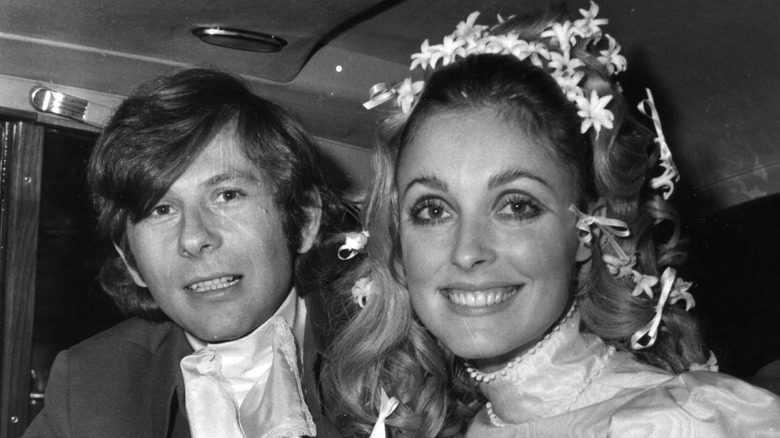Introduction:
Roman Polanski, the acclaimed French-Polish film director, stands as a cinematic maestro with a career spanning over six decades. His journey in the world of filmmaking is nothing short of extraordinary, marked by artistic brilliance, adversity, and a relentless pursuit of storytelling excellence. This comprehensive exploration traces the cinematic odyssey of Roman Polanski, from his early days in Poland to his international acclaim as one of the most influential and controversial directors in the history of cinema.
Section 1: Early Life and Formative Years
1.1 Birth and Childhood in Poland
Roman Polanski was born on August 18, 1933, in Paris, France, to Polish-Jewish parents. The family returned to Poland before the outbreak of World War II. Tragically, Polanski’s early life was marred by the Holocaust, as he lost his parents to the concentration camps, an experience that profoundly influenced his later works.
1.2 Emerging Interest in Filmmaking
Despite the harsh realities of his youth, Polanski discovered a passion for the arts, initially through painting and later through acting and directing in Poland’s burgeoning post-war film scene. His early exposure to the stark realities of life infused his work with a unique perspective that would become a hallmark of his filmmaking.
Section 2: Early Career in Poland
2.1 Breakthrough with “Knife in the Water” (1962)
Polanski’s breakthrough came with his feature debut, “Knife in the Water,” a psychological thriller that garnered international acclaim and became Poland’s first Academy Award nominee for Best Foreign Language Film. The film showcased Polanski’s keen sense of suspense and foreshadowed his future success.
2.2 Transition to International Filmmaking
Eager to explore broader horizons, Polanski transitioned to international filmmaking. “Repulsion” (1965) marked his foray into English-language cinema, showcasing his ability to craft psychological horror with a meticulous and unsettling style.
Section 3: Hollywood Success and Adversity
3.1 “Rosemary’s Baby” (1968)
Polanski’s Hollywood breakthrough came with “Rosemary’s Baby,” a chilling horror film that delved into psychological terror. The film’s success catapulted Polanski to international stardom, establishing him as a director with a unique ability to disturb and captivate audiences.
3.2 Personal Tragedy and “Chinatown” (1974)
The zenith of Polanski’s Hollywood career collided with personal tragedy when his pregnant wife, Sharon Tate, was brutally murdered by followers of Charles Manson. Despite this devastating loss, Polanski pressed on to direct “Chinatown” (1974), a neo-noir masterpiece that further solidified his reputation as a cinematic genius.
Section 4: Exile and Controversy
4.1 Legal Troubles
Roman Polanski’s life took a tumultuous turn when he faced legal troubles in the United States. In 1977, he pleaded guilty to a charge of unlawful sexual intercourse with a minor but fled the country before sentencing, leading to a protracted legal saga that continues to shape public perception of the director.
4.2 Exile in Europe
In the wake of the legal controversy, Polanski chose exile in Europe, directing films such as “Tess” (1979) and “Frantic” (1988). Despite his personal challenges, he continued to create compelling and visually stunning works that demonstrated his resilience as an artist.
Section 5: Later Career and Achievements
5.1 “The Pianist” (2002)
Polanski’s career reached new heights with “The Pianist” (2002), a poignant and deeply personal film that earned him the Academy Award for Best Director. The film, based on the memoir of Holocaust survivor Władysław Szpilman, marked a triumphant return to the spotlight.
5.2 Continued Excellence
In the subsequent years, Polanski continued to deliver compelling films such as “The Ghost Writer” (2010) and “Carnage” (2011). His ability to navigate diverse genres, from historical drama to political satire, showcased the depth of his storytelling prowess.
Section 6: Legacy and Influence
6.1 Artistic Innovation
Roman Polanski’s legacy is characterized by artistic innovation and a fearless approach to storytelling. His ability to craft intense psychological narratives, combined with a distinctive visual style, has left an indelible mark on the landscape of cinema.
6.2 Impact on Filmmaking
Polanski’s influence extends beyond his own films, as he has inspired subsequent generations of filmmakers. His exploration of human psychology, use of suspense, and dedication to the craft have become touchstones for aspiring directors.
Section 7: Awards and Recognition
7.1 Academy Awards and Nominations
Throughout his career, Polanski has received numerous accolades, including the Academy Award for Best Director for “The Pianist.” His films have garnered critical acclaim and multiple nominations, showcasing the breadth of his cinematic achievements.
7.2 Cannes Film Festival
Polanski’s films have also been celebrated at the Cannes Film Festival, where he won the Palme d’Or for “The Pianist” and received several other prestigious awards, solidifying his status as a revered figure in international cinema.
Section 8: Controversies and Criticism
8.1 Legal and Personal Controversies
Roman Polanski’s personal life, marked by the tragedy of the Manson murders and the legal battles that followed, has been a source of ongoing controversy. The debate surrounding his personal actions has, at times, overshadowed discussions about his artistic contributions.
8.2 Criticism and Ethical Debates
Polanski’s work has faced criticism in the context of ethical debates, with some arguing that his films should be reassessed in light of his legal troubles. Others contend that separating the artist from their art allows for a more nuanced appreciation of Polanski’s cinematic achievements.
Conclusion:
Roman Polanski’s journey as a French-Polish film director is a tapestry woven with artistic brilliance, personal tragedy, and enduring controversy. From the haunting landscapes of “Knife in the Water” to the psychological depths of “Rosemary’s Baby” and the triumphant return with “The Pianist,” Polanski’s career has been a testament to his resilience, innovation, and unwavering dedication to the craft of filmmaking. Despite the controversies that surround him, Polanski’s impact on cinema is undeniable, and his legacy as a cinematic auteur continues to shape the narrative of film history. Whether exploring the complexities of the human psyche or delving into historical dramas, Roman Polanski’s contributions to the world of cinema remain an integral part of its rich tapestry.
